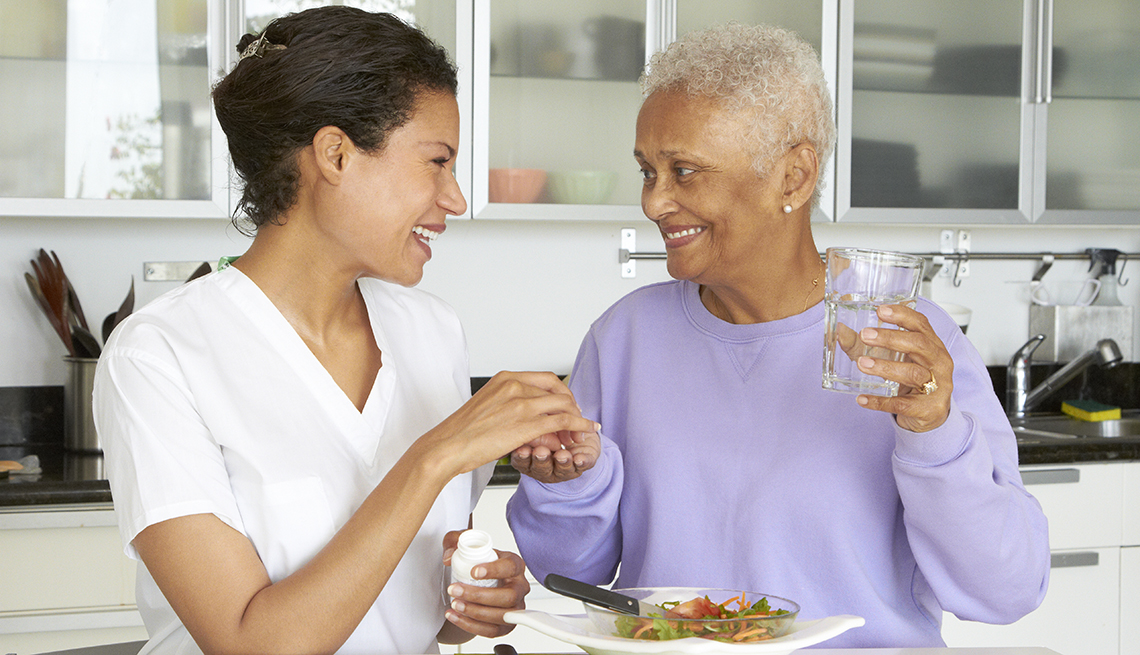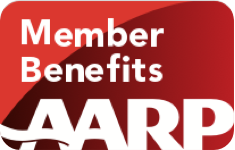Home Health Aides: When Your Loved One Needs Help With Personal Care
What family caregivers need to know about hiring
If you have a parent or spouse nearing retirement age, chances are good that at some point you'll be in the market for home health care.
People turning 65 today have an almost 70 percent chance of needing some type of long-term care services or support in their remaining years, and 1 in 5 will need such care for more than five years, according to the U.S. Department of Health and Human Services.
With longer life expectancy, “the risk of outliving savings, paying for elder care and being unable to leave a legacy to our children has increased,” says Aaron Schindler, a certified financial planner and owner of Care Concierge NY. The company provides long-term, in-home health services in the greater New York City region and New Jersey.
Those trends are fueling rapid growth in the home health care field. According to the most recent data from the federal Bureau of Labor Statistics (BLS), there were nearly 3.5 million home health aides (HHAs) and personal care aides (PCSs) working nationwide in May 2020, up from 3.3 million two years earlier. The BLS projects their ranks to swell by 33 percent by 2030, much faster than the average across all occupations.
When to look for a home health aide
When your loved one is no longer able to care for himself or herself or a family caregiver's ability to help has been exhausted, it may be time to consider a paid caregiver. Signs to look out for include these:
- Leaving the stove on
- Wandering away from home
- Not eating regularly or nutritiously
- Not bathing regularly
- Falling frequently or having difficulty walking without help
- Not driving safely to doctors’ offices or other appointments
- Not preparing simple meals
You may get some pushback from those who say they don't want or need help. Every situation is unique and everyone's needs are different, but when you feel your loved one can't be safe without help, discuss the options and allow the recipient of the care to help determine what he or she is most comfortable doing.
Health aide's duties, responsibilities
Home health aides are considered health care paraprofessionals and must meet state-set training requirements. (Other types of home health workers are sometimes lumped together under the title of home health aides; see the box.)
They might live with the care recipient or work regular shifts. Along with doing routine chores the care recipient can no longer manage, such as laundry, cooking and shopping, the aides must be able to:
- Assist with activities of daily living, including bathing, dressing, eating, grooming, moving from one place to another, toileting and cleaning up afterward.
- Check vital signs such as blood pressure, respiration and pulse.
- Monitor a client's physical and mental condition; level of exercise; and how much they are eating, drinking and going to the bathroom.
- Handle emergencies such as an accident, heart attack or stroke.
Home health aides do not provide services such as physical and occupational therapy or skilled nursing care. But they often are tasked with observing the care recipient's physical and mental health, and reporting on conditions to a registered nurse or other health care professional.
Traits to look for in a home health aide include compassion, good communication skills and attention to detail, says Christian Steiner, owner and operator of the Manhattan office of Home Instead Senior Care, a national provider of home health services. Flexibility, honesty, patience, physical stamina and some medical knowledge also are required to do the job well.
Training requirements for home health aides vary by state. Under federal law, home health aides must get at least 75 hours of training through a state-approved program, including at least 16 hours of hands-on practical and clinical training.
Most states follow that standard, but some set a higher bar. Thirteen states and the District of Columbia require 100 or more hours — up to a high of 180 in Maine — and 11 states and the District mandate at least 30 hours of clinical training, according to PHI, a nonprofit organization that works to improve direct-care services for older and disabled people.
Hiring and paying for an aide
You can hire a home health aide directly or through an agency.
If you use an agency, the process is simpler. You pay the agency, and it handles hiring and human-resources matters such background checks, payroll, taxes and insurance.
The agency provides monitoring and supervision of home health aides, for example, if there's a mishap or complaint, and you should be able to reach it at any time, day or night. If a particular caregiver isn't working out or a change in the care recipient's condition requires a more skilled aide, agencies can find a replacement quickly.
Look for an agency that has been licensed by the state where it operates. You can check for licensing status and other types of certification at the National Association of Home Care & Hospice's online agency locator. Medicare also rates private home-care services and has a searchable directory at its website.
When you hire directly, you usually will spend less and the aide will make more because you're not paying a middleman. However, you will have to get references and do background checks yourself. You're responsible for monitoring your home health aide and resolving any problems.
If you're hiring directly, consider seeking recommendations from friends and neighbors, or consult the community at senior centers or houses of worship.
Another option is a specialty direct-hire group such as Care Concierge NY. They maintain networks of independent caregivers and help place them based on the client's needs and personal factors like shared interests and hobbies.
"HHAs are not interchangeable. Each has his or her own skill set, experiences with different patient conditions, personality and cultural background,” says Betsy Gold, cofounder of the caregiver network Lean On We. “Be sure to specify your specific needs so you can hire somebody who is a good fit."
Some direct-hire firms charge a one-time finder's fee, normally a percentage of the aide's gross pay. They may be able to refer you to third-party providers of payroll and benefit services.
The median wage for a personal care or home health aide in May 2020 was $13.02 an hour, or about $27,800 a year, according to the BLS, which combines the two jobs into a single occupational category.
If your loved one has long-term care insurance, it may cover paid home care; contact the insurer for information. If the care recipient is a veteran or on Medicaid, financial aid for home care is potentially available from the federal government.
Gold offers these tips for working with home health aides and keeping a good one on board.
• Treat the aides as the valued employees they are. Keep in mind their workload, their need for daily breaks and scheduled time off, and the tasks they are trained to do or are willing to learn. Work with them to adapt to changes in working conditions or your loved one's needs.
• Keep informed about local, state and federal laws regarding aides' scheduling and paying at least minimum wage.
• Keep in mind that home health aides generally are hired to care for one person or a senior couple — not an entire family.
If your elderly father lives with you and needs home care, don't expect his caregiver to do everyone's laundry or drive your children to school. Your home aide may be willing to do these things, but if so, you should negotiate additional compensation.
Other types of home care workers
Though workers who provide paid care for older, ill or disabled people at home are often generically termed “home health aides,” home care providers are classified in several distinct ways with varying duties and levels of professional training. Along with HHAs, they include:
Companion/homemaker
- Provides companionship, meal preparation, light housekeeping.
- Shops and runs errands and may escort care recipient for doctor and other appointments.
- Needs no certification or license.
Personal care aide
- Performs tasks of companion/homemaker plus assistance with more involved personal care such as bathing, grooming and using the bathroom.
- Has passed training requirements that vary by state from none to 100 hours including some clinical training. PHI, a nonprofit that focuses on direct-care services for older people, has a map where you can check your state's requirements.
Certified nursing assistant
- Performs tasks of personal care aide, home health aide (see main story) and companion/homemaker.
- Can do or assist with some medical procedures, such as basic wound care or handling catheters.
- Has had at least 75 hours of training, as federal law requires, including 16 hours of clinical training. Most states exceed that standard, with general training time ranging as high as 180 hours and clinical training as high as 100 hours. PHI has state-by-state information.
Barbara Sadick is a New York-based freelance health writer whose stories appear in the Wall Street Journal, U.S. News & World Report and other major publications.


